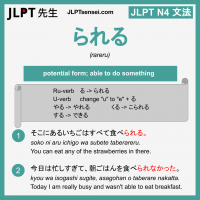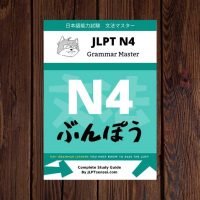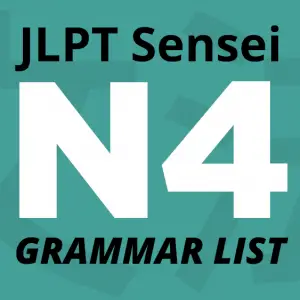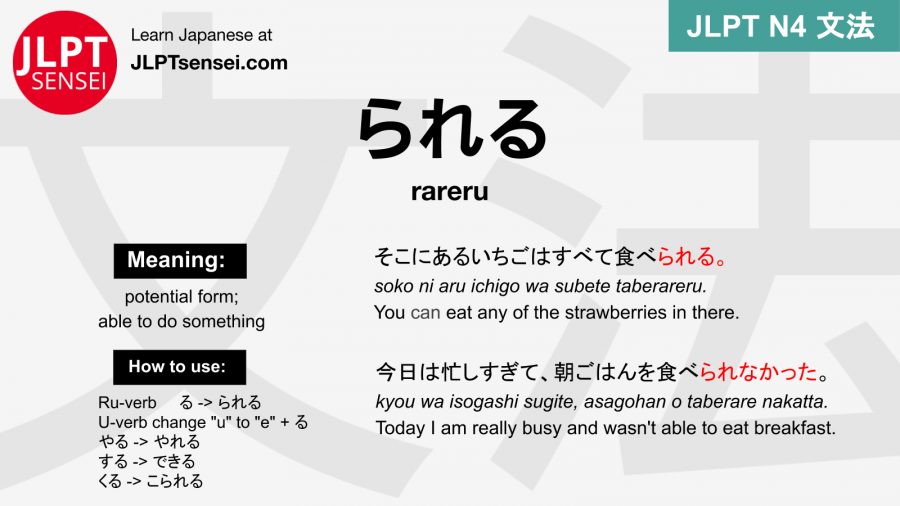Aprende gramática del idioma Japonés: られる (rareru). Significado: potential form; being able to do something.
This is used to describe the ability or inability to do something.
First, let’s look at the rules for how to create potential form, and then how we can use it in a sentence.
Rules for Creating Potential Form
Ru-verb
Simply remove the final る (ru) and replace with られる (rareru).
食べる -> 食べられる (taberu -> taberareru)
To eat -> To be able to eat
U-verb
Change the final «u» to be an «e» instead, and then add る (ru).
Ex) む (mu) becomes め (me).
飲む -> 飲める (nomu -> nomeru)
To drink -> To be able to drink
つ (tsu) becomes て (te)
立つ -> 立てる (tatsu -> tateru)
To stand -> To be able to stand
Irregular verbs
する -> できる (suru -> dekiru)
To do -> To be able to do
くる -> これる (kuru -> koreru)
To come -> To be able to come
How to Use Potential Form
When using potential form, the particle を (o/wo) is often changed to が (ga) instead.
すしを食べる。
sushi o taberu.
I eat sushi.
Will change to..
すしが食べられる。
sushi ga taberareru
I can eat sushi.
Important Notes
You can use either を (o/wo) or が (ga) with most verbs, but when used with できる (dekiru), you must always use が (ga).
Be careful to not confuse this with 受身形 (ukemi) passive voice, where many conjugations may be similar.

Click the image to download the flashcard.
Download all N4 grammar flashcards.

Download our complete
JLPT N4 Grammar Master E-book.
Access ALL extra downloads, ebooks, and study guides by supporting JLPT Sensei on Patreon.
られる - Oraciones de ejemplos 例文
Cada oración de ejemplo incluye ayudas como la lectura (hiragana) en Japónes, la lectura en romaji, y la traducción en Español.
Da clic en el siguiente botón rojo para alternar todas las ayudas, o puedes dar clic en los botones individuales para mostrar únicamente las que desees ver.
Ejemplo #1
そんなことを信じられない。
Ejemplo #2
そこにあるいちごはすべて食べられる。
Ejemplo #3
今日は忙しすぎて、朝ごはんを食べられなかった。
Ejemplo #4
納豆が食べられるの?
Ejemplo #5
夜は寒くて寝られない。
Ejemplo #6
私はここにあまり長くいられない。
Ejemplo #7
私たちがここで何を見つけられるか見に行ってみましょう。
Ejemplo #8
私がやれる限りの事をしたい。


